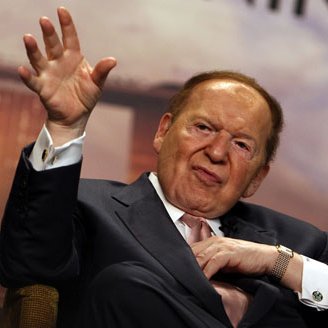Fraternal Order of Police: "Online Gambling Ban Benefits Criminals"

 Following the introduction of legislation last week from South Carolina Senator Lindsey Graham and Utah Representative Jason Chaffetz to ban online gambling and poker in the United States, a key organization responsible for implementing laws came out against their efforts.
Following the introduction of legislation last week from South Carolina Senator Lindsey Graham and Utah Representative Jason Chaffetz to ban online gambling and poker in the United States, a key organization responsible for implementing laws came out against their efforts.
In an op/ed on The Hill’s website, the President of the National Fraternal Order of Police, Chuck Canterbury (pictured), detailed what his organization looks at when certain legislation is proposed. “As an organization, we are always looking for opportunities to make citizens safer while improving officer safety,” Canterbury wrote.
In the case of the proposed legislation from Graham and Chaffetz, Canterbury said, “The answer in regards to a nationwide ban on all online gaming is an unequivocal no.”
Canterbury looked at the statistics behind online gambling and poker in its current unregulated state. “Approximately 1 million Americans spend approximately $3 billion a year on illegal, black market online gaming,” he said in his op/ed. “We know, based on demand, that this number is going to continue to grow significantly in the future.”
From there, Canterbury pointed out the problems that face the current unregulated industry in the US. “This means millions of Americans are participating in a dangerous arena because of several reasons,” Canterbury opined. “The black market has no age verification to prevent children from playing, the black market has no requirement that operators be licensed to screen out criminal elements, [and] the black market has no oversight that the games are fair.”
 “A national ban on all online gaming would just drive online gaming further underground and put more people at risk,” he wrote.
“A national ban on all online gaming would just drive online gaming further underground and put more people at risk,” he wrote.
Canterbury pointed out several reasons for having a regulated online gambling market. “We should maintain states’ rights to regulate online gaming within their borders and reinvest that revenue to make sure the systems are safe for all consumers,” he said. “This will allow law enforcement the tools necessary to monitor and shut down illegal activity and give consumers who may have been victimized a means of redress.”
“By having a well-regulated, well-monitored system for online gaming, people will be less drawn to illegal black market sites, which means a decrease in targets for criminals and less profit for their unlawful enterprises,” Canterbury concluded. “We want to keep our citizens and our officers safe.”
Previous to Canterbury’s op/ed in The Hill, the FOP has been on the fence regarding the issues of online gambling and poker. Just last year during hearings in Congress, Canterbury himself testified that the safeguards put in place for an online gaming industry might not be sufficient to make such an industry legally enforceable.
 “Law enforcement is always behind the eight ball on technology, especially state and local outlets,” Canterbury testified in July 2013. “It will take us years to get to the place where we need to be technologically to fight any sort of money laundering at the state level, especially when it is cross-border money laundering.”
“Law enforcement is always behind the eight ball on technology, especially state and local outlets,” Canterbury testified in July 2013. “It will take us years to get to the place where we need to be technologically to fight any sort of money laundering at the state level, especially when it is cross-border money laundering.”
The bills from Graham and Chaffetz to ban online poker and gambling in the US have been linked to Las Vegas Sands Corporation chairman and CEO Sheldon Adelson (pictured), who has ramped up the fight against online gaming through an organization he created, the Coalition to Stop Internet Gambling. At this time, however, the bills from Graham and Chaffetz have not been scheduled for a committee hearing, the first step to putting a bill on the floor of the Senate or the House. Both lawmakers have declined interview requests from PocketFives.
Adelson’s casinos include the Venetian and Palazzo in Las Vegas and Sands Bethlehem in Pennsylvania.
Want the latest poker headlines and interviews? Follow PocketFives on Twitterand Like PocketFives on Facebook. You can also subscribe to our RSS feed.




